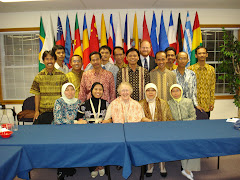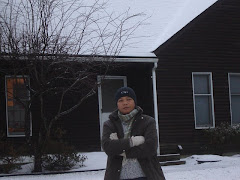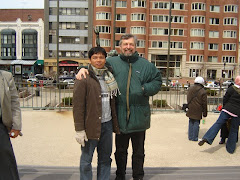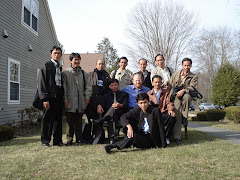Tuesday, November 24, 2009
Ke USA mau?
To alumni SMK N 1 Cilacap especially UJP yg dah di kerja di Industri Tourism, ada kesempatan belajar di Community College di USA. Yang berminat contact Mr. N asap.
Tuesday, November 17, 2009
Aged Day
Every third Monday of September is Keirou no ni (敬老の日) or Respect for the Aged Day. On this day, news stations like to report the current statistics on the geriatric population. As of now, the oldest Japanese woman is Kama Chinen (知念カマ). She is one hundred and fourteen years old. Not surprisely, she is from Okinawa (沖縄), Japan. The local elderly population of Okinawa are known for their longevity. A low fat diet, low stress lifestyle and a caring community for the elderly, are some of the things that contribute to the long life span of the Okinawans.
Despite Kama Chinen’s long life, her age has taken a toll on her. She can no longer move around without a wheelchair. Other than that, she is considered a ‘healthy’ for her age. Not just in Okinawa, but in Japan in general, the elderly population is rising rapidly. This has profound social implications for Japan. Insurance premiums are rising, which has some impact on the Japanese government and its tax paying citizens. Although longevity is increasing with age, the quality of life isn’t necessarily rising in direct proportion to age.
Some of the elderly have very high salt and cholestrol diets. The instability of the economy has made it so that some members of the elderly community have to continue working; contributing to a high stress lifestyle. Even in Okinawa, the expansion of the U.S. military has caused environmental degradation, noise pollution and the introduction of fast food (like McDonalds), which has serious implications for the elderly. With these changes, Respect of the Aged Day may become even more important.
As of now, the types of social services that are provided for the elderly depend on the region and city of Japan. Some towns are generous enough to hand out free bentos (べんとう) or boxed lunches to the elderly. Some towns have annual school plays where children perform skits for the elderly. Like towns, individual families also differ in the way they chose to spend Respect for the Aged Day. Some families use this time to go on vacation and some choose to spend quality time with a grandparent or two with gifts in hand.
Despite Kama Chinen’s long life, her age has taken a toll on her. She can no longer move around without a wheelchair. Other than that, she is considered a ‘healthy’ for her age. Not just in Okinawa, but in Japan in general, the elderly population is rising rapidly. This has profound social implications for Japan. Insurance premiums are rising, which has some impact on the Japanese government and its tax paying citizens. Although longevity is increasing with age, the quality of life isn’t necessarily rising in direct proportion to age.
Some of the elderly have very high salt and cholestrol diets. The instability of the economy has made it so that some members of the elderly community have to continue working; contributing to a high stress lifestyle. Even in Okinawa, the expansion of the U.S. military has caused environmental degradation, noise pollution and the introduction of fast food (like McDonalds), which has serious implications for the elderly. With these changes, Respect of the Aged Day may become even more important.
As of now, the types of social services that are provided for the elderly depend on the region and city of Japan. Some towns are generous enough to hand out free bentos (べんとう) or boxed lunches to the elderly. Some towns have annual school plays where children perform skits for the elderly. Like towns, individual families also differ in the way they chose to spend Respect for the Aged Day. Some families use this time to go on vacation and some choose to spend quality time with a grandparent or two with gifts in hand.
Subscribe to:
Comments (Atom)













